If you want to buy municipal water from Woonsocket, the first meeting with the mayor is free. The second meeting might cost a campaign donation. That is the appearance given when Adler, Pollack and Sheehan, the law firm representing the proposed power plant in Burrillville, had two meetings in September with Woonsocket Mayor Lisa Baldelli-Hunt, separated by an expensive fundraiser in a high end Italian eatery.
The revelation prompted one Burrillville resident to quip,”Maybe we should be giving the mayor some money.”
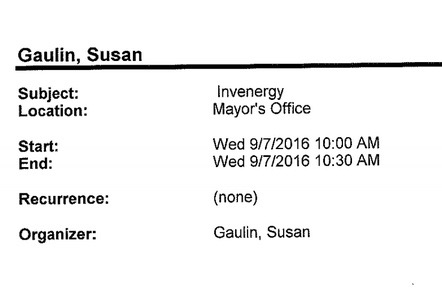
On September 7, according to information gleaned via an Access to Public Records Act (APRA) request, representatives from Mayor Baldelli-Hunt’s office met with representatives from Invenergy. City councilors, who were briefed after the fact, confirmed the meeting pertained to selling water to the power plant to cool its turbines.
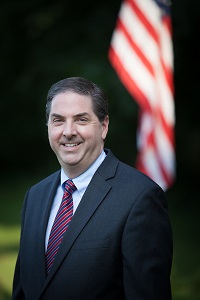
This meeting lasted 30 minutes. City Solicitor Michael Marcello, who is also a state representative from District 41 representing Scituate and Cranston, would release no further information about this meeting, saying that the details are secret at this time. Marcello served with Baldelli-Hunt when she was a state rep from 2006-2013.
On September 15, at a fundraising event held at Trattoria Romana, three lawyers from the company Adler, Pollock and Sheehan (APS), the law firm representing Invenergy before the state’s Energy Facilities Siting Board, donated a total of $1,000 to Baldelli-Hunt’s campaign, according to the Mayor’s campaign finance reports – including a $250 donation from a lobbyist for Invenergy.


Robert Brooks, Managing Partner and Chairman of the firm’s Labor and Employment Law Group, donated $250. This is the first time Brooks, a prolific political donor, has given Baldelli-Hunt any money.
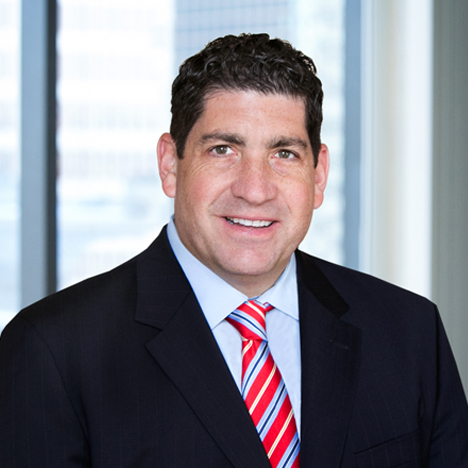
Stephen Ucci, who is also a state representative for District 42, representing Cranston and Johnston, and who sits on the House’s Labor and Rules committees, donated $500. Ucci, who served with Baldelli-Hunt and Woonsocket City Solicitor Marcello while they both served in the House, has given a total of $750 to the mayor in the past.

Richard Beretta Jr, is not only listed on the APS website as “currently engaged in the permitting process for a 1000 MW power plant” (the one Invenergy plans for Burrillville) but is also listed by the Rhode Island Secretary of State as a registered lobbyist for Invenergy. Beretta gave $250 on September 15. He previously gave Baldelli-Hunt $200 in February of 2015.
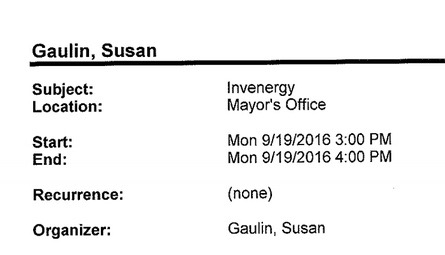
Four days after this fundraiser, in which employees of APS gave Baldelli-Hunt at least $1000, Invenergy had a second meeting with Baldelli-Hunt’s office. This meeting was also about procuring water and lasted an hour.
Mayor Baldelli-Hunt, who is running on a “pro-business” platform, has another fundraiser planned for November 3 at River Falls Restaurant, from 6-9pm.
Invenergy was recently granted a 90-day extension on their application because the company has failed to come up a with a water source to cool the plant. The Woonsocket Call reported yesterday that City Councillor Daniel Gendron knew nothing about the two meetings, saying, “Really? That’s more than I knew. And that in itself is concerning.”
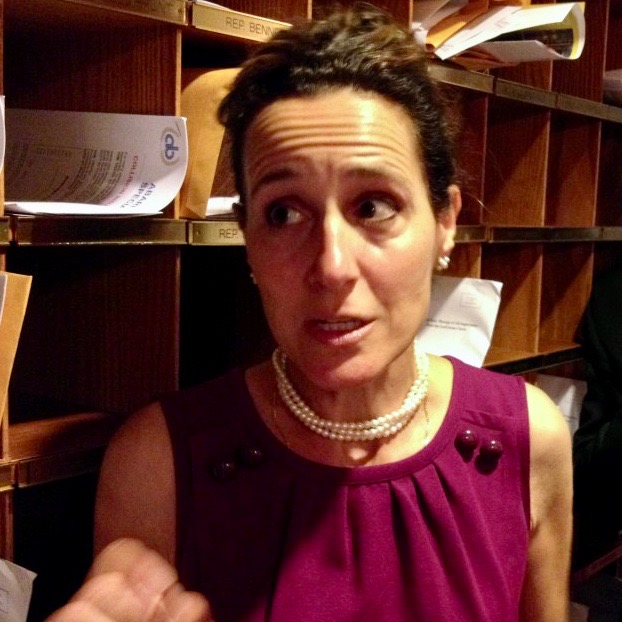
According to The Call, Gendron and Council Vice President Albert Brien Jr “sent Baldelli-Hunt an e-mail Monday advising her that the City Charter requires the administration to keep members of the council in the loop about the status of business negotiations.” They have requested that the mayor, “expeditiously communicate with the council and provide ALL pertinent emails and other relevant communications between the city and representatives of Invenergy together with any other information that may enlighten all of us as to what exactly is being negotiated at this time.”
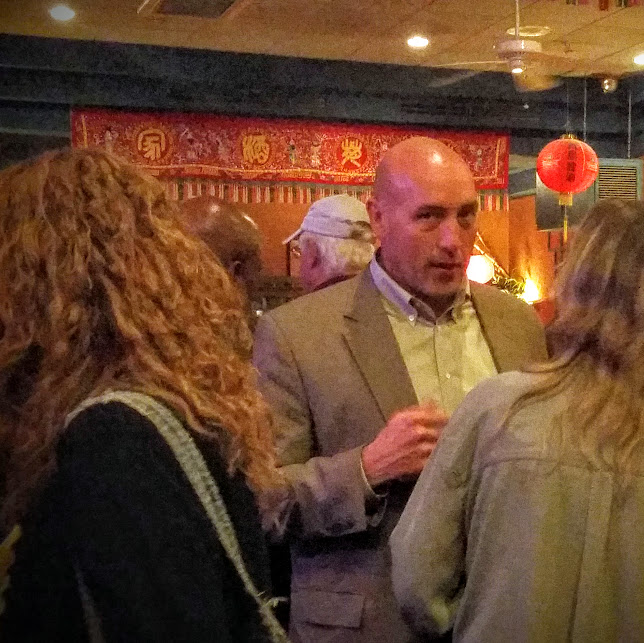
Baldelli-Hunt has refused frequent calls for comment from RI Future for weeks now. At a candidate forum in Chan’s Restaurant in Woonsocket last night, Woonsocket Public’s Safety Director Eugene Jalette refused to let residents of Burrillville, Nick Katkevich of the FANG Collective or this reporter approach the mayor to ask questions.




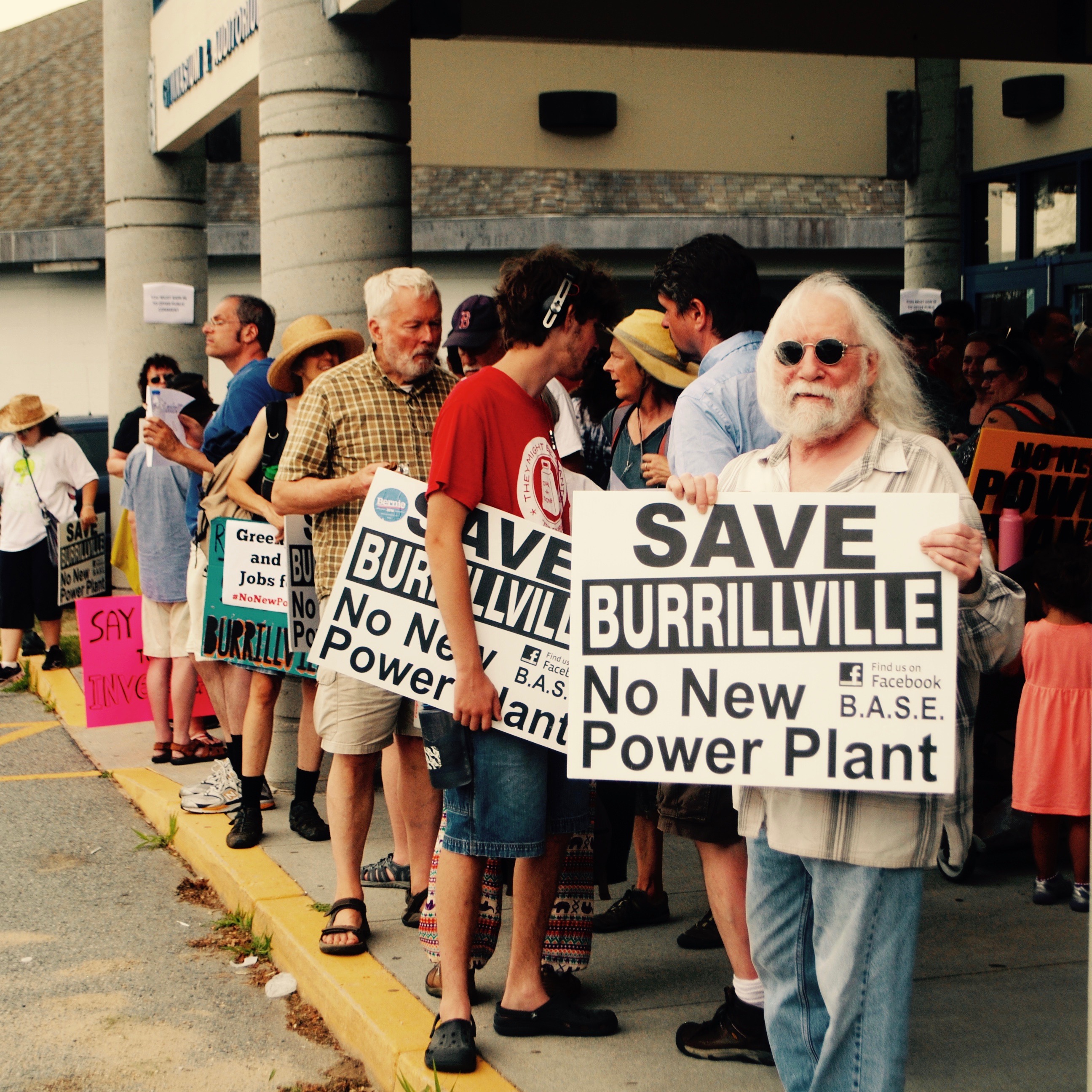
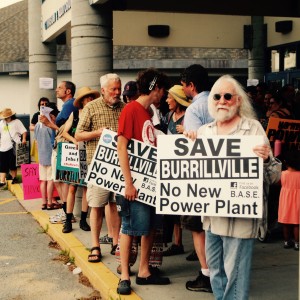 On Wednesday the Burrillville Town Council will be discussing the proposed tax treaty with Invenergy, the company that wants to build a $700 million fracked gas and diesel oil burning power plant in the town. The timing of this discussion could not be worse. Invenergy just successfully petitioned the Energy Facilities Siting Board (EFSB), the governmental body tasked with with approving or rejecting the plant, for a
On Wednesday the Burrillville Town Council will be discussing the proposed tax treaty with Invenergy, the company that wants to build a $700 million fracked gas and diesel oil burning power plant in the town. The timing of this discussion could not be worse. Invenergy just successfully petitioned the Energy Facilities Siting Board (EFSB), the governmental body tasked with with approving or rejecting the plant, for a  Attorney Alan Shoer, of Adler Pollock & Sheehan, has been representing Invenergy during their application process in front of the EFSB. A look at Shoer’s
Attorney Alan Shoer, of Adler Pollock & Sheehan, has been representing Invenergy during their application process in front of the EFSB. A look at Shoer’s 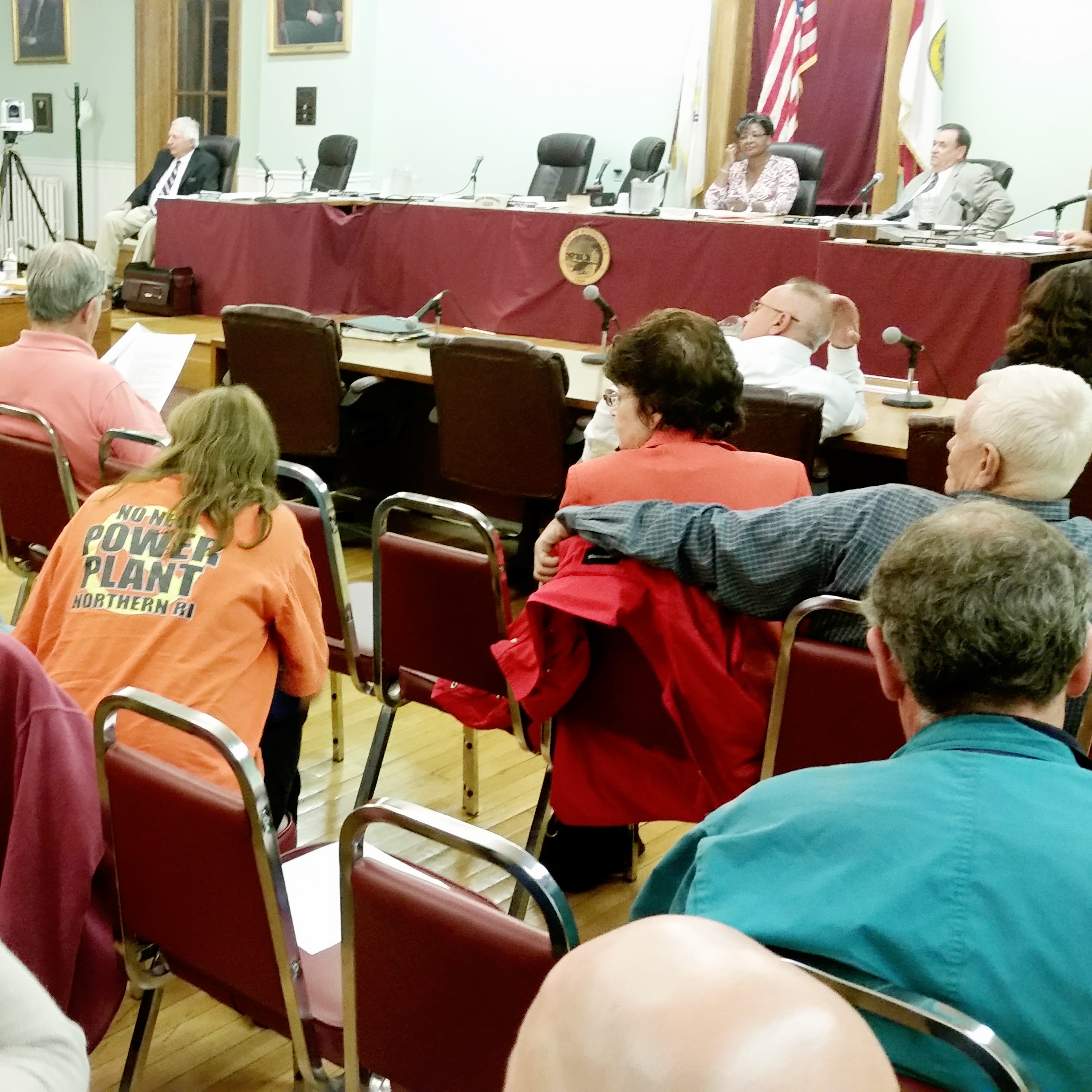
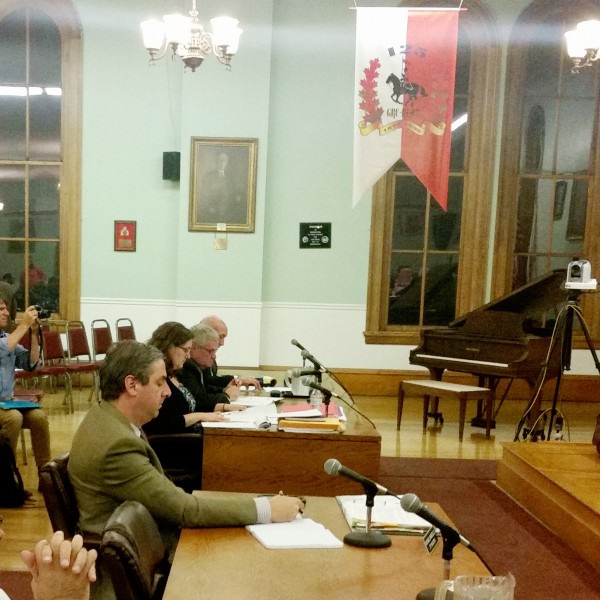
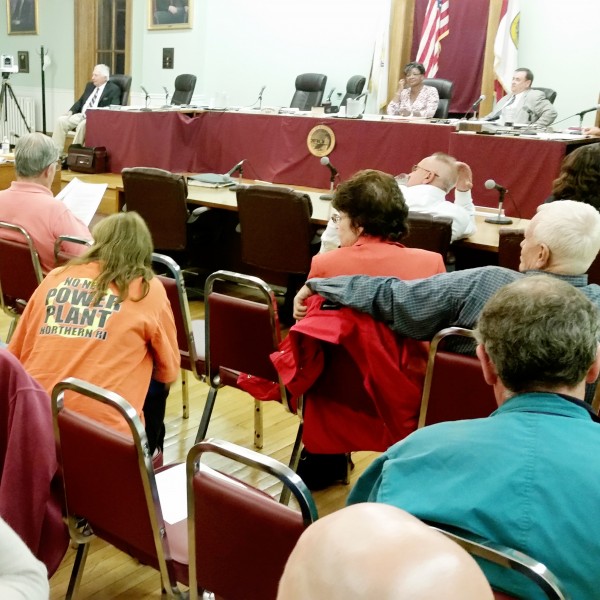 Gendron asked two questions. The first concerned rumors that Invenergy was in negotiations to locate the power plant in Woonsocket, as an alternative to locating the plant in Burrillville, where there has been fierce local and statewide opposition. The second concerned the possible sale of water to Invenergy, for the plant planned for Burrillville.
Gendron asked two questions. The first concerned rumors that Invenergy was in negotiations to locate the power plant in Woonsocket, as an alternative to locating the plant in Burrillville, where there has been fierce local and statewide opposition. The second concerned the possible sale of water to Invenergy, for the plant planned for Burrillville.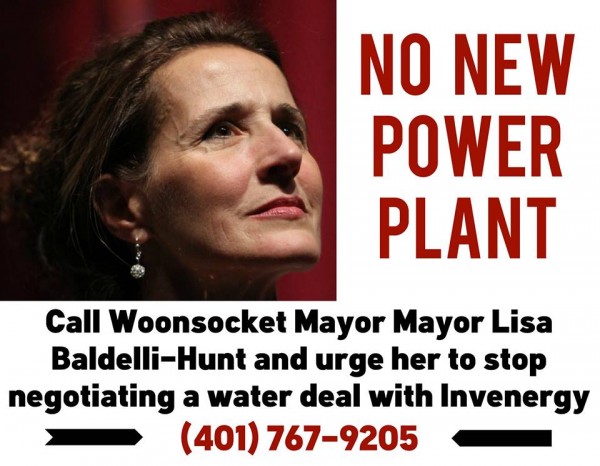 “But with regard to your second question,” said Marcello, “you received a briefing in closed session, and that’s where that information must lay right now. In closed session.”
“But with regard to your second question,” said Marcello, “you received a briefing in closed session, and that’s where that information must lay right now. In closed session.”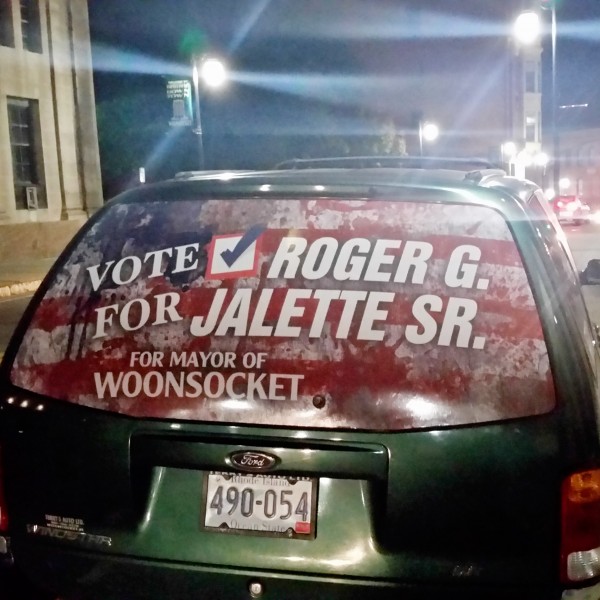 “I put this item on the agenda tonight,” said Gendron, “for discussion purposes… that is what precipitated the executive session that took place prior to this meeting.” The item was “an effort to bring out the truth,” said Gendron. “I think that we needed to start this talk, we needed to squelch some of the rumors.” The solicitor denied completely that there was a power plant coming to Woonsocket, said Gendron. Before today, “none of [the city council] knew what was going on, and that was the benefit of the executive session.”
“I put this item on the agenda tonight,” said Gendron, “for discussion purposes… that is what precipitated the executive session that took place prior to this meeting.” The item was “an effort to bring out the truth,” said Gendron. “I think that we needed to start this talk, we needed to squelch some of the rumors.” The solicitor denied completely that there was a power plant coming to Woonsocket, said Gendron. Before today, “none of [the city council] knew what was going on, and that was the benefit of the executive session.”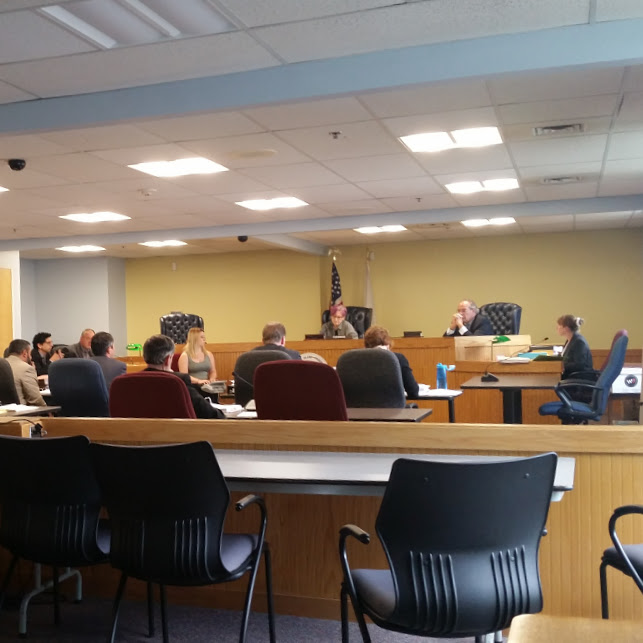
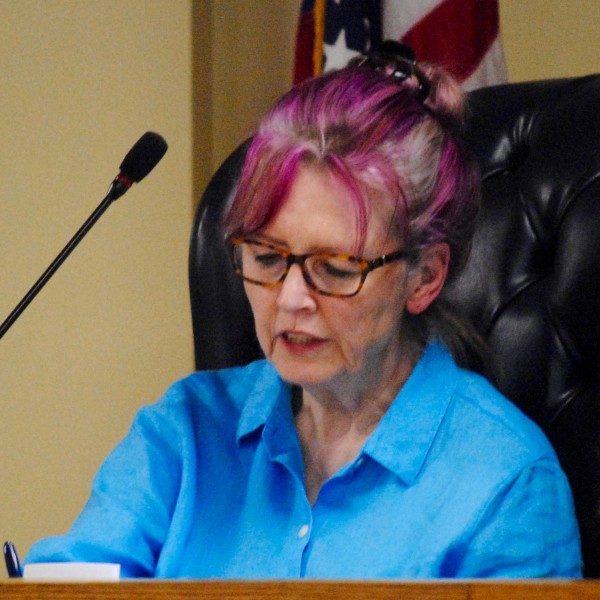


 The Providence Police Department is in the process of finalizing their implementation of a
The Providence Police Department is in the process of finalizing their implementation of a  According to the draft proposal, which may be amended at any time, “It is the policy of the Providence Police Department to utilize body-worn camera equipment to record and document specific categories of law enforcement interactions with the public, and to institute parameters governing the viewing, storage and dissemination of the associated audiovisual recordings,” according to the draft policy.
According to the draft proposal, which may be amended at any time, “It is the policy of the Providence Police Department to utilize body-worn camera equipment to record and document specific categories of law enforcement interactions with the public, and to institute parameters governing the viewing, storage and dissemination of the associated audiovisual recordings,” according to the draft policy.
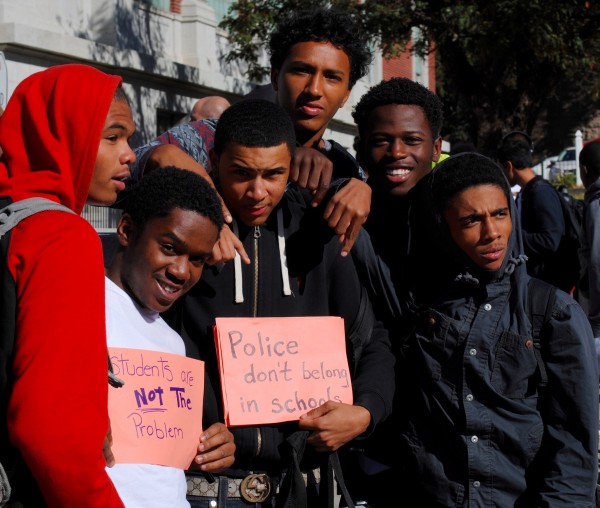 The public interest in both the incident and subsequent investigation is clear, the groups stated, pointing to the extensive media coverage of the incident, the subsequent student protests, and the important policy issues the incident raised. In requesting the release of the documents, the groups noted that in August the State Police voluntarily released a detailed report into the Cranston Police Department and its “Ticketgate” scandal.
The public interest in both the incident and subsequent investigation is clear, the groups stated, pointing to the extensive media coverage of the incident, the subsequent student protests, and the important policy issues the incident raised. In requesting the release of the documents, the groups noted that in August the State Police voluntarily released a detailed report into the Cranston Police Department and its “Ticketgate” scandal.